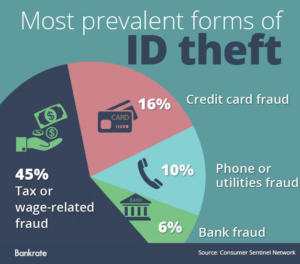Many consumers have become wise to the ways of internet scammers, no longer falling for phishing attacks or clicking fraudulent links to their accounts. Many hackers and scammers are going after companies that hold the consumer data “secure.” With all of the recent data breaches on financial institutions,credit bureaus,and email companies everywhere, it’s natural to be a little wary of identity theft. The Equifax breach was particularly awful for consumers because particularly sensitive personal data was stolen such as where you grew up and your mother’s maiden name, the info for those two layer “security questions.”
 To make matters worse, in my humble opinion, the guardians of your credit report (and mysteriously calculated “score”) actually charge consumers hard earned dollars for access to their OWN information. The nerve! But my feelings aside, checking your credit report is an important part of taking control of your money. The Fair Credit Reporting Act, FCRA, authorizes one free credit report each year from each of the three credit reporting bureaus. There is only one link that is “federally certified” so do not click into any of the 34 ads on the way to annualcreditreport.com
To make matters worse, in my humble opinion, the guardians of your credit report (and mysteriously calculated “score”) actually charge consumers hard earned dollars for access to their OWN information. The nerve! But my feelings aside, checking your credit report is an important part of taking control of your money. The Fair Credit Reporting Act, FCRA, authorizes one free credit report each year from each of the three credit reporting bureaus. There is only one link that is “federally certified” so do not click into any of the 34 ads on the way to annualcreditreport.com
I do not generally recommend anyone order all of them at once. You get one a year from each bureau, so ordering one from one of the three bureaus every four months provides a continuous look throughout the year. You can look for unauthorized accounts, errors in reporting, suspicious activity and even addresses that are not yours. If you find something that shouldn’t be there, or there are balance issues, or additional addresses, you can file a “dispute” with the credit bureau so the issue can be investigated.
CAUTION: you can only file a dispute if something on your report is incorrect. There are a ton of “cure your credit report” scams out there, so beware. If your credit report has taken a hit due to debt issues, bankruptcy, or just poor money management, such as forgetting to mail the payment on time, it will take time to rebuild. It’s a marathon, not a sprint.
If you are a victim of identity theft, you MUST take action as soon as you detect it. This includes filing a police report, contacting the lenders (who are also victims of the thief), putting a fraud alert or freezing your credit report. A step-by-step process is available from the Federal Trade Commission’s identity theft website. Yup, sadly that’s a thing.